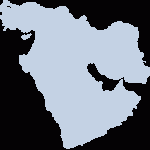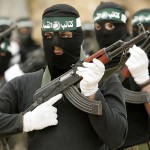Turkey's Israel "Problem": Analysing the Supposed Threat from Washington (Yenidunya)
 Friday, August 20, 2010 at 9:53
Friday, August 20, 2010 at 9:53  On Tuesday, a Ramallah resident, Nadim Injaz, entered the Turkish Embassy in Tel Aviv and triedto take one of the employees hostage with a knife and what later turned out to be a toy gun. After a standoff of several hours, he was shot in the legs and hospitalised.
On Tuesday, a Ramallah resident, Nadim Injaz, entered the Turkish Embassy in Tel Aviv and triedto take one of the employees hostage with a knife and what later turned out to be a toy gun. After a standoff of several hours, he was shot in the legs and hospitalised.Fatah issued an official statement denying that Injaz had been employed by the Palestinian Authority: "He is a drug dealer who lives in Tel Aviv under official Israel protection." Israeli police confirmed that Injaz collaborated with Israel's security services in the past.
Gaza: UN Releases Report on War “No Judgement”
After the incident, a Turkish diplomatic source told Turkish daily Hurriyet: “This incident has proven that there is a security weakness. The results of Tuesday’s attack would have been worse if our security personnel had not been able to act in time."
The Turkish comment comes after a Financial Times report of a warning from President Obama to Turkish Prime Minister Recep Tayyip Erdogan that the US cut off military supplies unless Ankara eased the friction in its foreign policy towards Israel.
Responses from Washington complicated the situation. White House Deputy Press Secretary Bill Burton denied the news:
The President and Erdogan did speak about 10 days ago and they talked about Iran and the flotilla and other issues related to that. But we obviously have an ongoing dialogue with them. But no such ultimatum was issued.There’s no ultimatum.
Then a senior Obama administration official, quoted by the FT, "clarified":
The president has said to [Recep Tayyip] Erdogan that some of the actions that Turkey has taken have caused questions to be raised on the Hill [Congress] . . . about whether we can have confidence in Turkey as an ally.
On Wednesday, the Turkish side denied the original report. Foreign Minister Ahmet Davutoglu told Turkey's Zaman: "No country can warn Turkey. No one can display such a stance towards the Turkish Prime Minister."
President Abdullah Gul said: "There are no problems in ties with the US. The Turkey that some had grown accustomed to no longer exists. Instead, there is a Turkey that plays a central role in many processes. There are those who are confused by this."
However, on the same day, Erdogan said there could be problems with weapon sales because of the US Congress. He added that "such matters are internal in every country" and that Turkey is capable of manufacturing many of the armaments.
After this confusion, a Turkish committee headed by Foreign Ministry Undersecretary Feridun Sinirlioglu and Deputy Undersecretaries Selim Yenel and Tacan Ildem will be going to Washington, according to diplomatic sources. Iran's nuclear programme, Afghanistan, Iraq, and relations with Israel are expected to be on the agenda.
Ankara's message is clear: "Our goals are same but strategies may be different. Turkey's axis is not shifting; we are just looking for relative autonomy." The request to the Obama Administration will beto help Ankara fix its image in the Congress.




